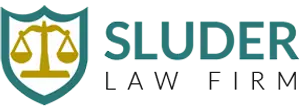Checkpoints: When Can the Police Legally Seize You Without Reasonable Articulable Suspicion?
Published February 22nd, 2015
Checkpoints: When Can the Police Legally Seize You Without Reasonable Articulable Suspicion?
The United States Supreme Court upheld sobriety checkpoints against a Fourth Amendment challenge in Michigan Department of State Police v. Sitz. The court there considered the important public interest in preventing DWI as balanced against 4th amendment liberty interests. This was a horrible decision for your rights, but, nonetheless, it is the law of the land. The court did make it clear that the checkpoint must be reasonable, minimal, not a “surprise”, and only for the purpose of a legitimately important state interest. What if you approach a checkpoint with your windows rolled up and do not speak, as has been recently publicized by a Florida Lawyer? Is this legal? What would happen? Can the officer force you to roll down the window, effectively “searching you” after having seized you? The answer is not so clear, and may depend on what state you are in. This is a very brief review of North Carolina Law regarding checkpoints.
The question ultimately lies in a balance between advancing a state interest in keeping the highways safe from impaired drivers, coupled with motor vehicle law enforcement, balanced against 4th and 5th amendment rights. In North Carolina, a DWI checkpoint is authorized not only by Michigan v. Sitz authority, but by our own statute, NCGS 20-16.3A
Courts determine the legality of a checkpoint, initially, by looking at three areas.
First, a checkpoint must have a legitimate purpose.
Second, a checkpoint must be reasonable
Finally, the intrusion into your individual rights must be minimal.
Purpose- First, the court must determine the “primary programmatic purpose” of the checkpoint. Police cannot just set up a checkpoint willy nilly and stop drivers on fishing expeditions to see what things they can find. The intrusion on your rights must be done for a legitimate purpose. The US Supreme court has already held that DWI checkpoints are legitimate checkpoint purposes. General crime control checkpoints are NOT permissible. Under North Carolina Law, “Chapter 20 violation” checkpoints are permissible (checkpoints with the purpose of checking license, insurance, seatbelt, and other motor vehicle requirements that may not be readily observable) (See more information at http://www.sluderlaw.com/traffic-law ) The court will need to consider various factors when determining what the “purpose” of the checkpoint is- and this is not exclusively what the officer says the purpose is- the facts and circumstances of the checkpoint must be examined to make this determination. Some (but not all) of the questions the trial court should ask when making this inquiry are: Is there a written plan for the checkpoint describing the purpose? Was the date set in advance, or was it a spontaneous checkpoint? Is the checkpoint to be of a specific duration? Was the location chosen due to statistically significant DWI arrests, traffic fatalities, or a lot of bars in the area? How did the officers behave at the checkpoint? What agency were the officers from, and what is their primary job in that agency? (State v. Townsend)
By answering these questions, after the fact, the court makes a determination about the purpose of the checkpoint. After determining what the “primary programmatic purpose” of the checkpoint is, the court also must determine that certain rules were followed in the conduct of the checkpoint, and that the checkpoint itself was “reasonable”. The checkpoint must follow the plan, be well marked for drivers, not stop cars indiscriminately, must not allow officers unilateral discretion in deciding which cars to stop. The detention at the stop must be brief and only a minimal intrusion on the individual’s rights. Overall, the checkpoint must have been reasonable.
The North Carolina Statute requires that the plan for the checkpoint must designate a pattern for stopping cars and for asking for a license, registration, and insurance. No individual officer can be given discretion for deciding which vehicles are stopped, but the plan may have contingencies for unexpected traffic resulting in a change in the order of vehicles stopped. The checkpoint must advise the public that it is there, by having at a minimum, one patrol car with blue lights flashing while the station is checking. They cannot pull over a specific vehicle type (they could not stop all Mustangs, for example, unless they were stopping all vehicles), but may pull over any commercial vehicle (because there are additional laws regarding commercial vehicle inspection and safety). (More information is available at http://www.sluderlaw.com/driving-while-impaired )
If the officer determines that there is reasonable suspicion that an occupant has violated a provision of Chapter 20 (such as no license, dead tag, no seat belt, DWI, etc.) or any other law (such as a brick of cocaine laying on the passenger seat www.sluderlaw.com/drug-offenses or a warrant for a missed court date www.sluderlaw.com/missed-court-date ) then the officer may detain the driver to further investigate. The officer can request the driver submit to an alcohol screening test if during the course of the stop, the officer determines that the driver has consumed alcohol or has an open container in the car.
So what happens if you show your license, registration, and insurance through your rolled up window, you do not show outward signs of being impaired, and you have no open containers or other obvious contraband in plain view? The officer may waive you through. The officer may. If he does not, and he detains you further, he may end up charging you with resist, delay, and obstruct. You may be found not guilty of this, after being arrested and taken to jail for the night, hiring a lawyer, and going to trial, on the grounds that the officer did not have legitimate grounds for your further detention. If a court determines that you were illegally detained, any other evidence the officer discovered against you after the illegal detention may be excluded by the court.
This is not, however, a settled area of law. There is a strong argument to be made for the state, that since a DWI checkpoint is Constitutionally permissible, checking for odor, slurred speech, and other indications of impairment are also permissible- which could mean that refusing to roll down your window is the equivalent of turning to avoid the checkpoint. And turning to avoid the checkpoint is almost always going to give the officer “reasonable suspicion” to stop you, where you will have to interact with the officer. www.sluderlaw.com

